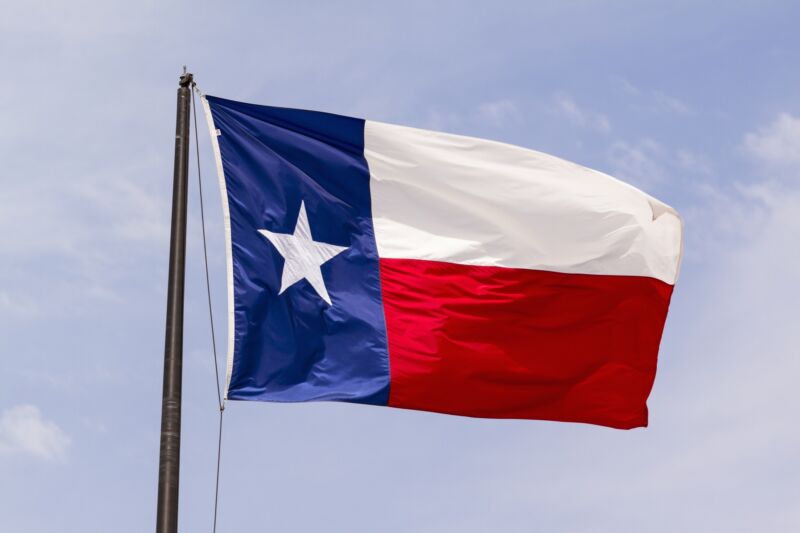
Getty Images | PA Thompson
The US Supreme Court yesterday denied a request to block a Texas law that requires age-verification systems on porn websites. The Supreme Court denial leaves in place, at least for now, an appeals court ruling that said Texas can enforce the law.
“The application for stay presented to Justice [Samuel] Alito and by him referred to the Court is denied,” the one-sentence order issued yesterday said.
Pornhub disabled its website in Texas after the appeals court ruling in March. Pornhub and other websites owned by the same company have also gone dark in Arkansas, Mississippi, Montana, North Carolina, Utah, and Virginia in protest of similar laws.
Texas sued Pornhub owner Aylo Global for violating the law in February. Texas also sued the companies that operate Chaturbate and xHamster.
“Children will continue to be protected from harmful content in Texas,” state Attorney General Ken Paxton wrote after yesterday’s order. The Texas law applies to websites in which more than one-third of the content “is sexual material harmful to minors.” Those websites must “use reasonable age verification methods” to limit their material to people who are at least 18 years old.
Petition to hear case still pending
A US District Court judge issued a preliminary injunction blocking enforcement of the Texas law in August 2023. But the US Court of Appeals for the 5th Circuit issued a temporary stay that allowed the law to take effect in September 2023, and vacated the injunction in March 2024.
An adult-industry lobby group called the Free Speech Coalition and other challengers asked the Supreme Court for a stay on April 12. The case implicates “the uniform and faithful application of this Court’s precedents to the modern-day Internet as novel regulations traverse hallowed First Amendment ground,” the application for a stay said.
The Supreme Court has not yet ruled on the Free Speech Coalition’s petition for certoriari. If that’s approved, the court would hear oral arguments and then decide whether to uphold or nullify the Texas law. The Free Speech Coalition urged the Supreme Court to issue a stay pending a decision on the petition for certoriari.
Dispute over appropriate legal standard
The Free Speech Coalition is asking the Supreme Court to decide whether the 5th Circuit “erred as a matter of law in applying rational-basis review to a law burdening adults’ access to protected speech, instead of strict scrutiny as this Court and other circuits have consistently done.”
The 5th Circuit’s ruling came in a 2-1 decision by a panel of judges. The majority applied the rational-basis standard and ruled that “the age-verification requirement is rationally related to the government’s legitimate interest in preventing minors’ access to pornography.”
Dissenting Judge Patrick Higginbotham wrote that the Supreme Court “has unswervingly applied strict scrutiny to content-based regulations that limit adults’ access to protected speech.” The Texas law “limits access to materials that may be denied to minors but remain constitutionally protected speech for adults,” he wrote. “It follows that the law must face strict scrutiny review because it limits adults’ access to protected speech using a content-based distinction—whether that speech is harmful to minors.”
Despite upholding the law’s age-verification requirement, the 5th Circuit ruled that Texas cannot enforce a provision requiring porn websites to “display health warnings about the effects of the consumption of pornography.” The warning requirement unconstitutionally compels speech, the court ruled.




















+ There are no comments
Add yours